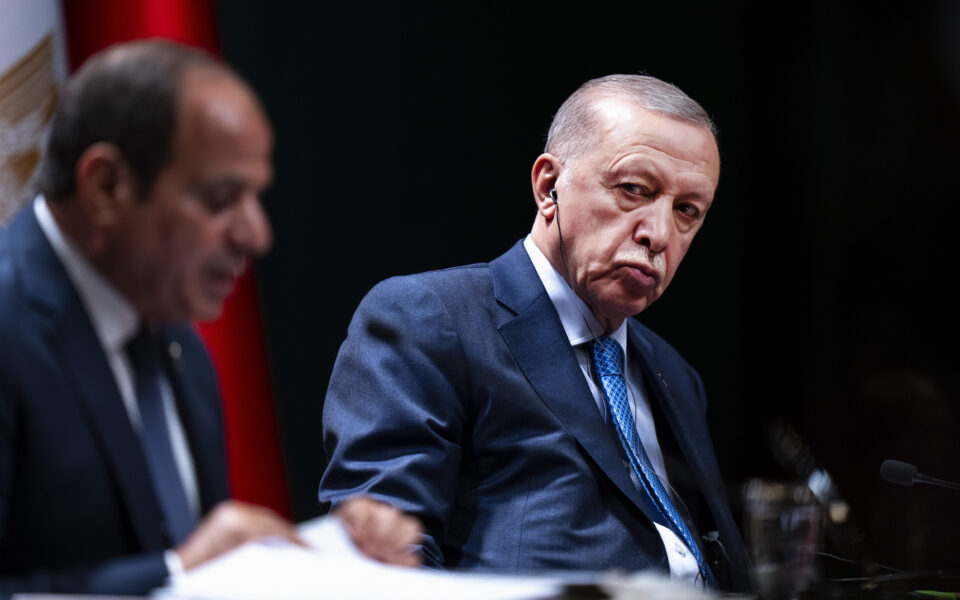This is not the first great turnaround in policy by Recep Tayyip Erdogan. However, the exchange of niceties – first in Cairo, now in Ankara – with the Egyptian president whom, until recently, he was calling a “putschist” and “dictator,” has special significance. It will stand as an example of “erdoganism’s” extreme amorality. The Turkish president lives in a world in which he makes his own rules, always with the overarching aim of securing his survival and political domination. Fixed elements of his policy are the suppression and elimination of rivals, the maintenance of a clique of businessmen and politicians who depend on him, and control of all institutions, among them the judiciary and news media. This allows him to change course whenever he is at an impasse. In these instances, he comes to terms with people or forces with differing positions to his, as long as this is in his immediate interest. He did this when choosing people with an international reputation to undo the damage that he had done to the economy. He did this when he asked Putin for forgiveness in 2016, and embraced him, when he realized that a falling-out with the Russian president would be more dangerous than he had thought. In every case, though, he continued to improvise to serve his own interests.
also read: La Libye tête de pont de la Turquie en Afrique
It seemed that relations with Egypt would play out on a different basis, as Erdogan had a personal investment there. In the Arab Spring in 2011, Erdogan saw himself as a protagonist across the whole region. His close ties with Mohamed Morsi of the Muslim Brotherhood, who was elected president of Egypt in 2012, was ousted in a military coup in 2013, and died in prison in 2019, meant lasting enmity with the man who toppled Morsi and now leads Egypt, Abdel Fattah el-Sisi. Now, the situation in the Middle East, the two countries’ needs and Erdogan’s improvisations have brought a turnaround. Unmute
For Athens, much depends on whether Sisi can exploit his country’s good relations with Greece to persuade Erdogan that Turkey’s policy in Libya will have a heavy cost. Because the Turkish president changes course only when he hits a dead end, when he needs to find another way to achieve his long-term aims.

